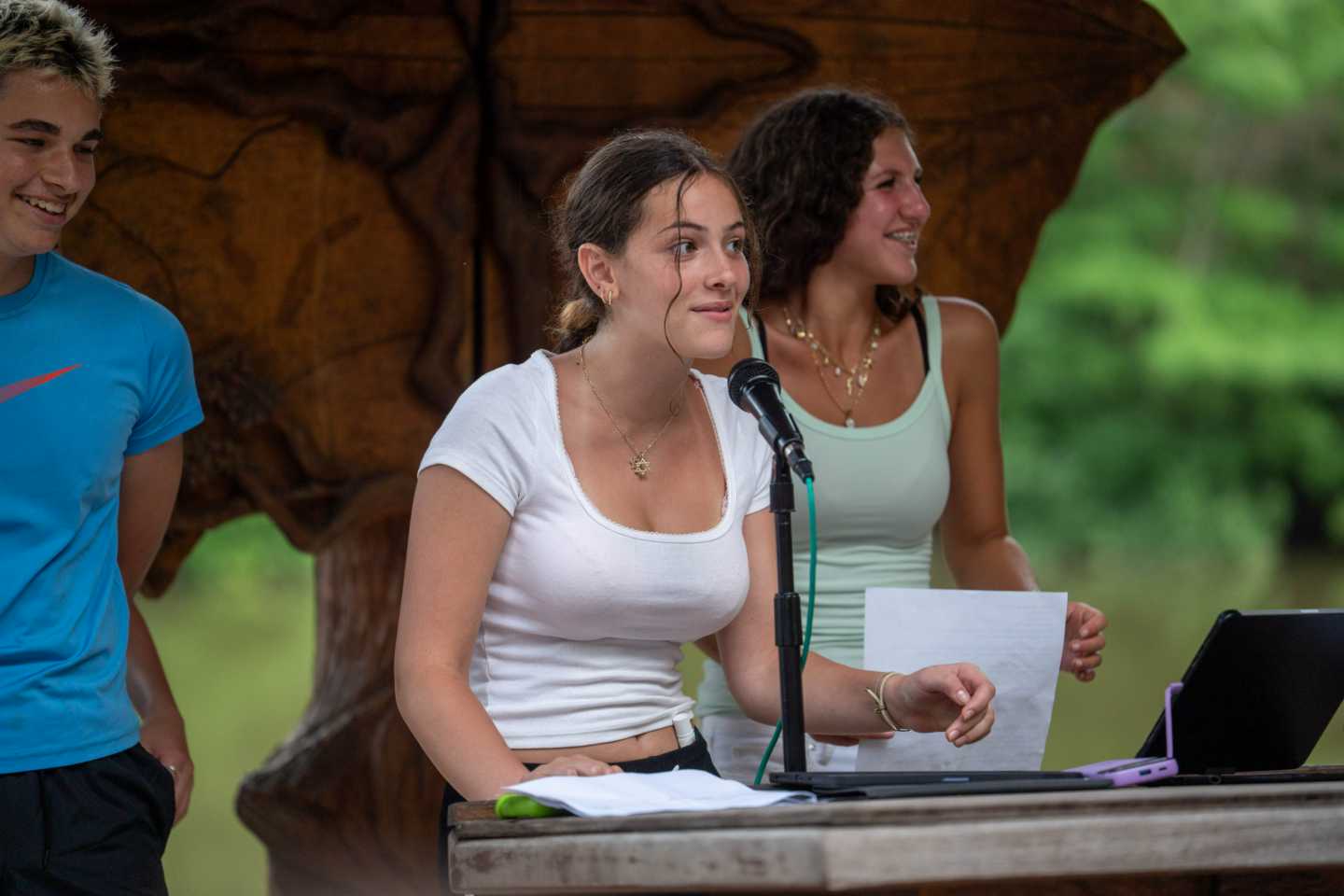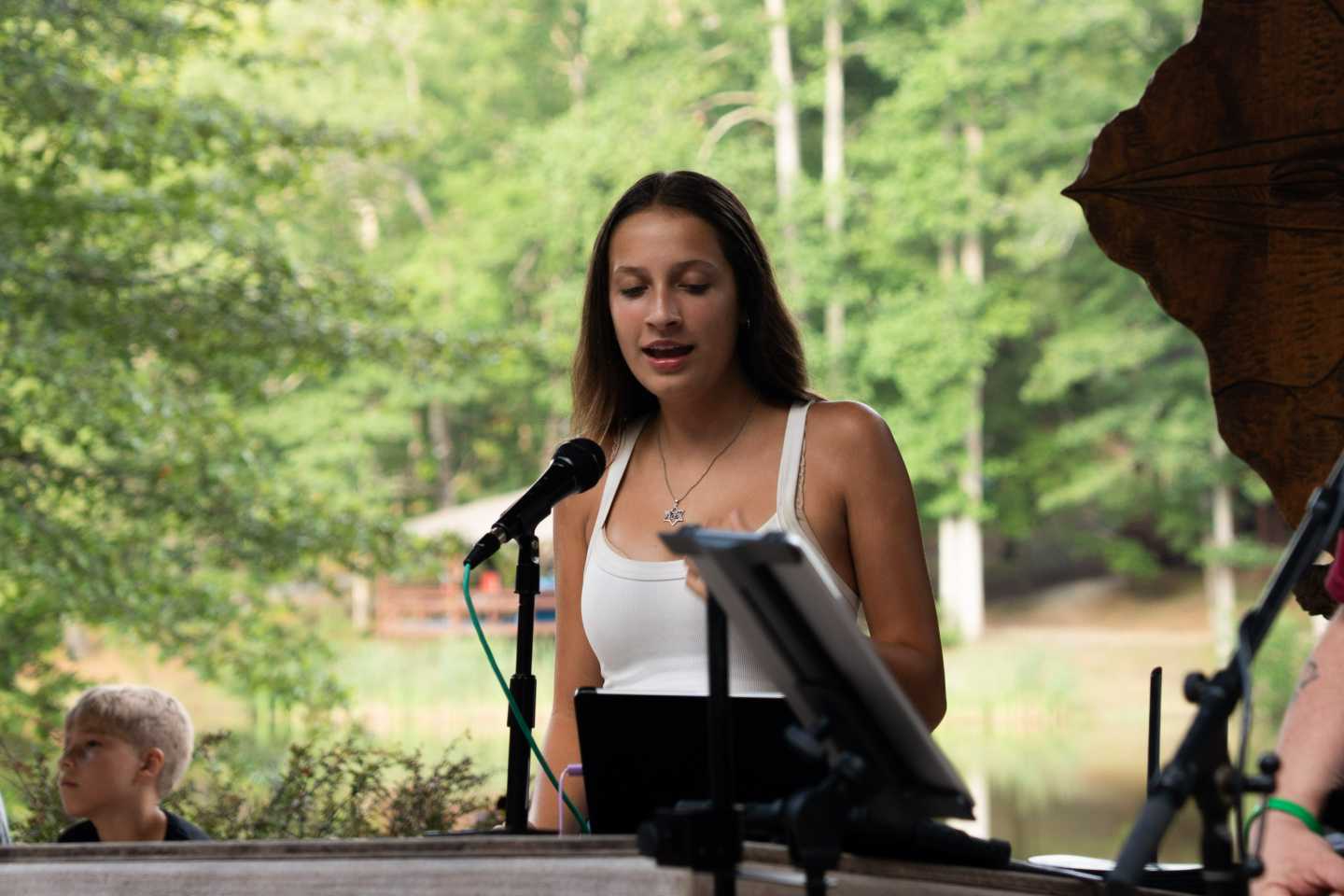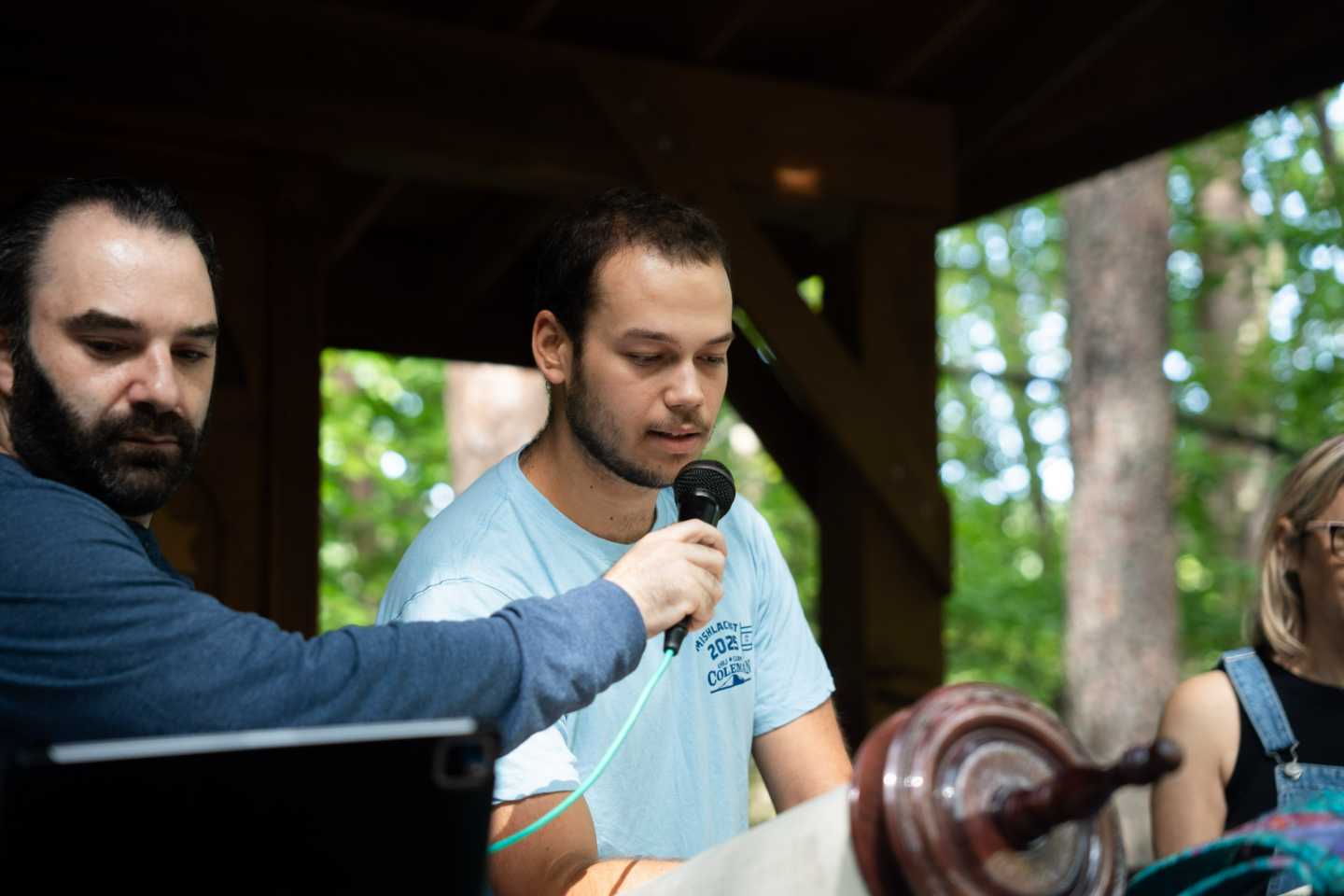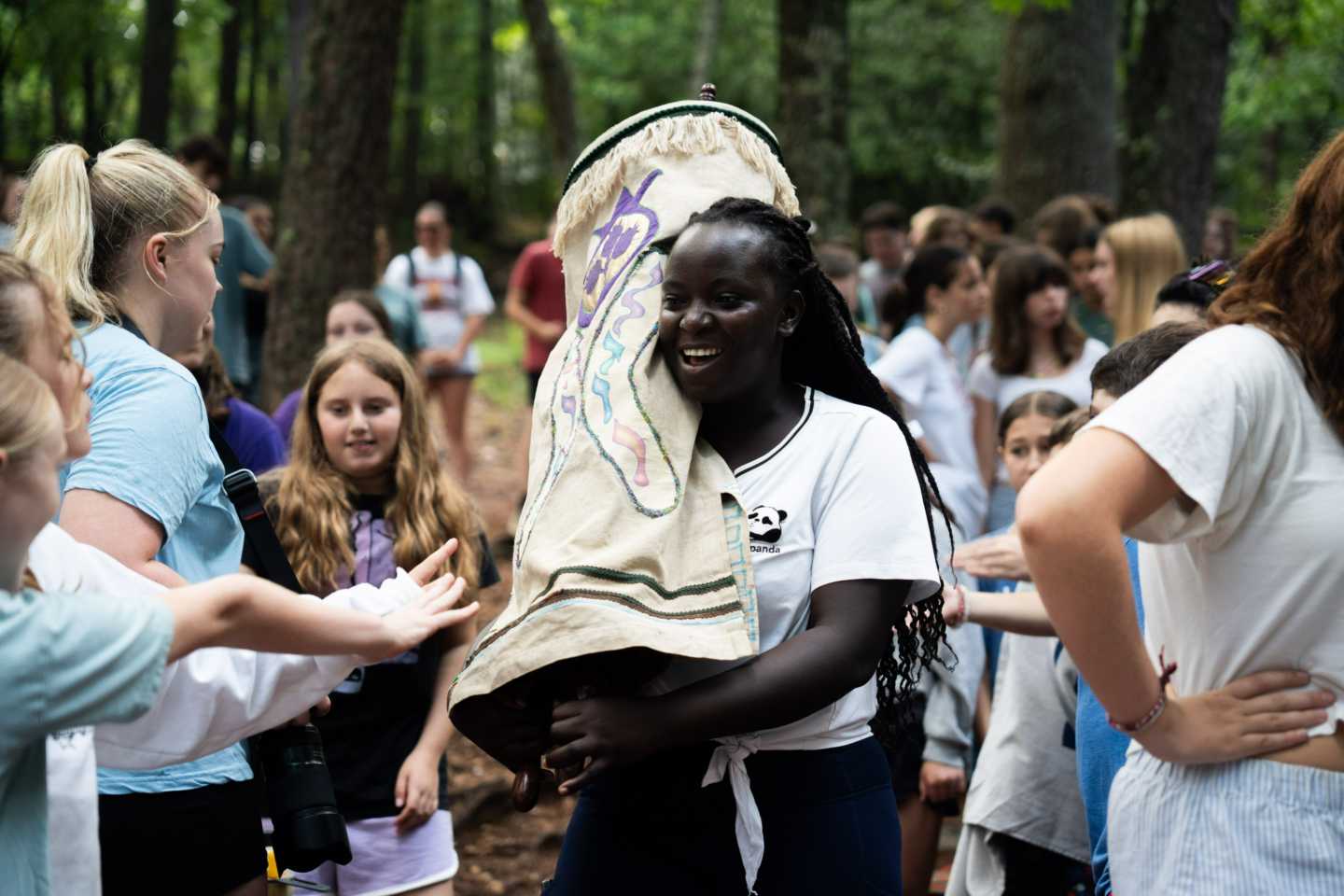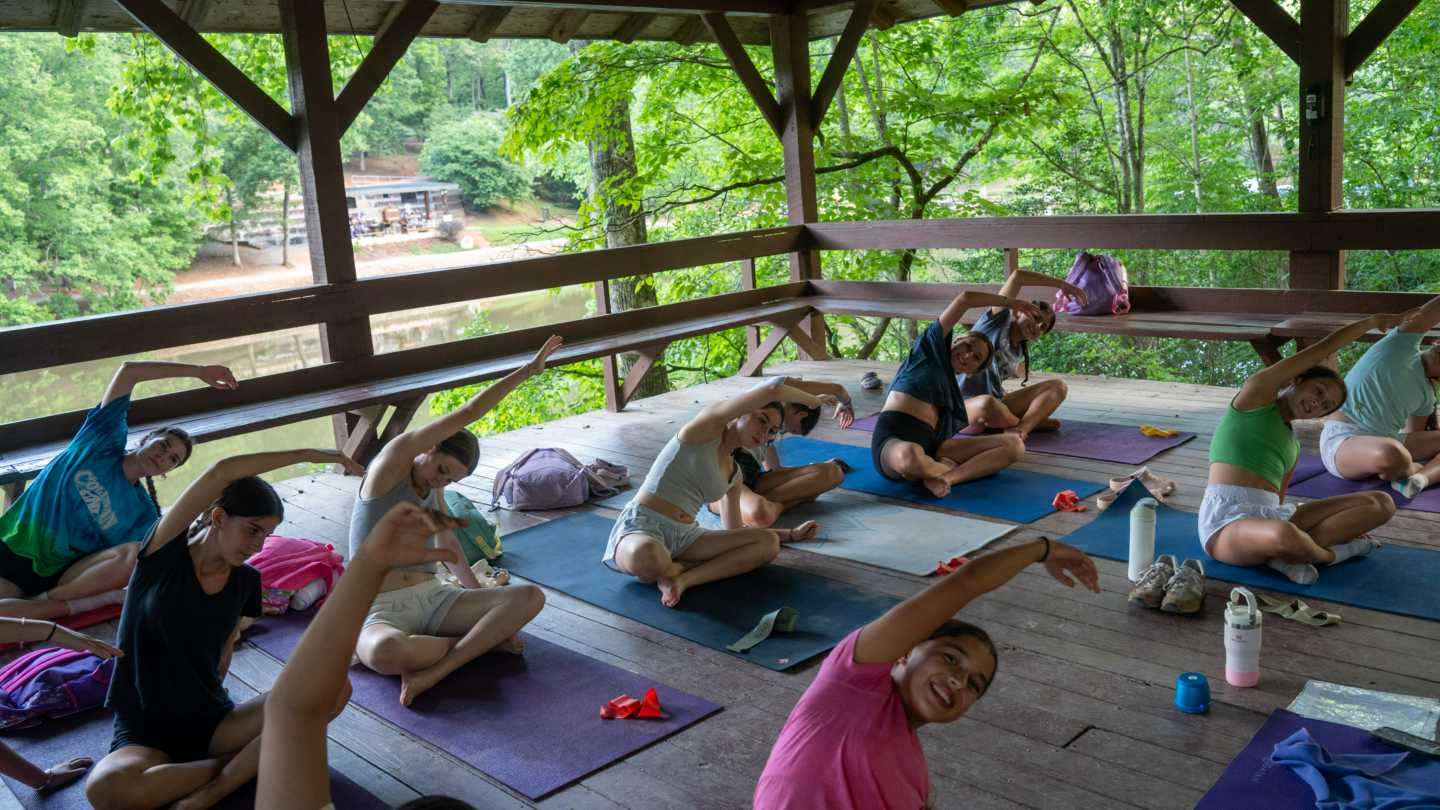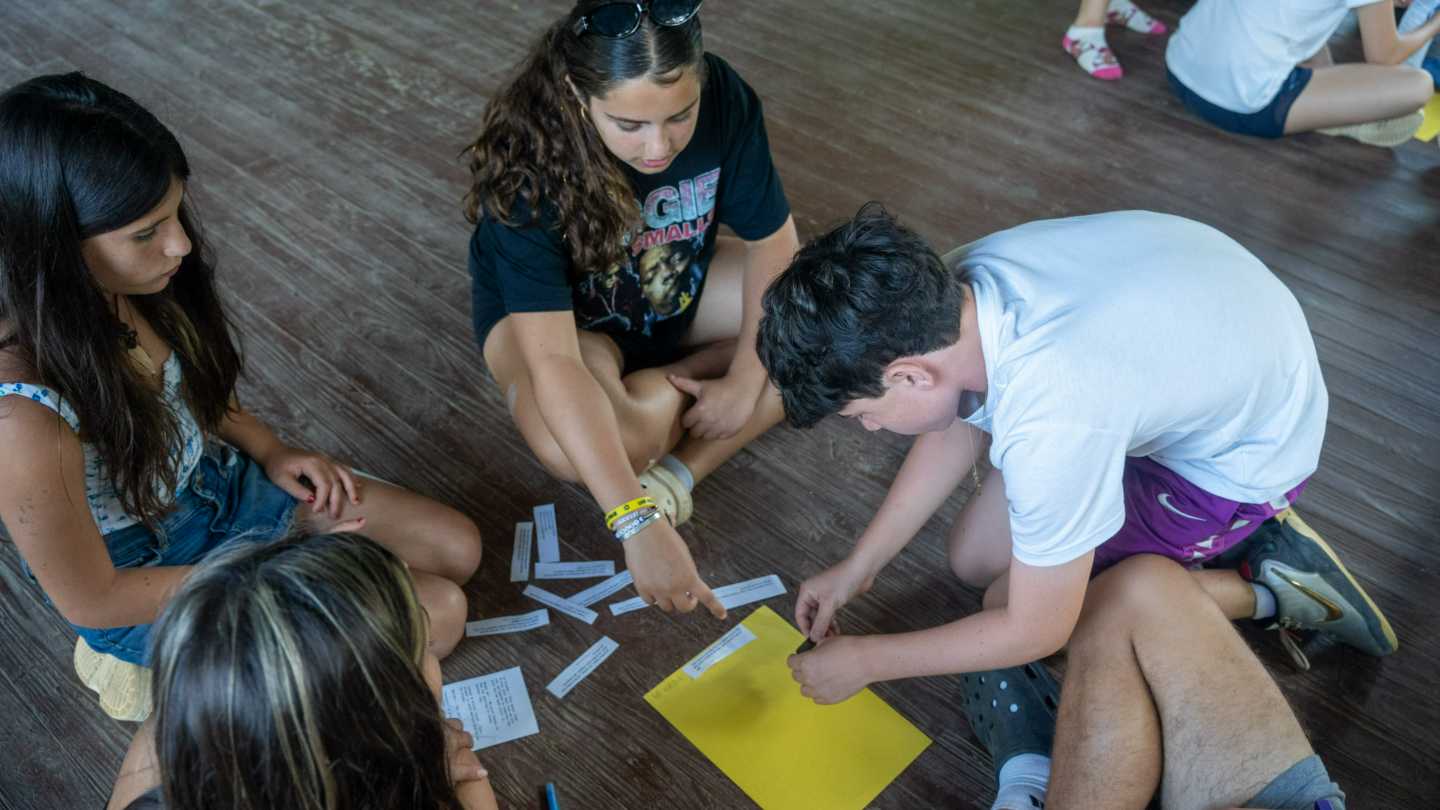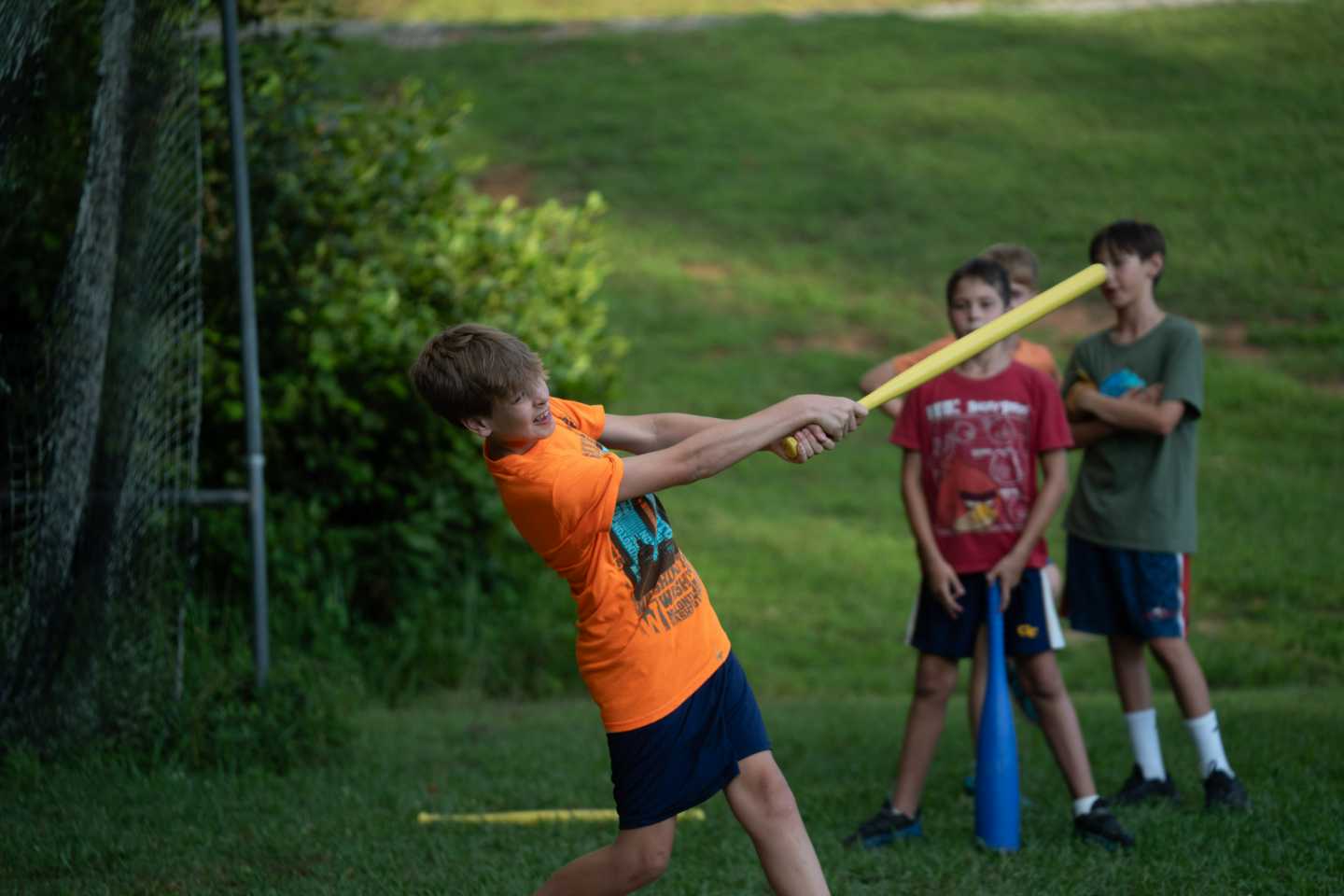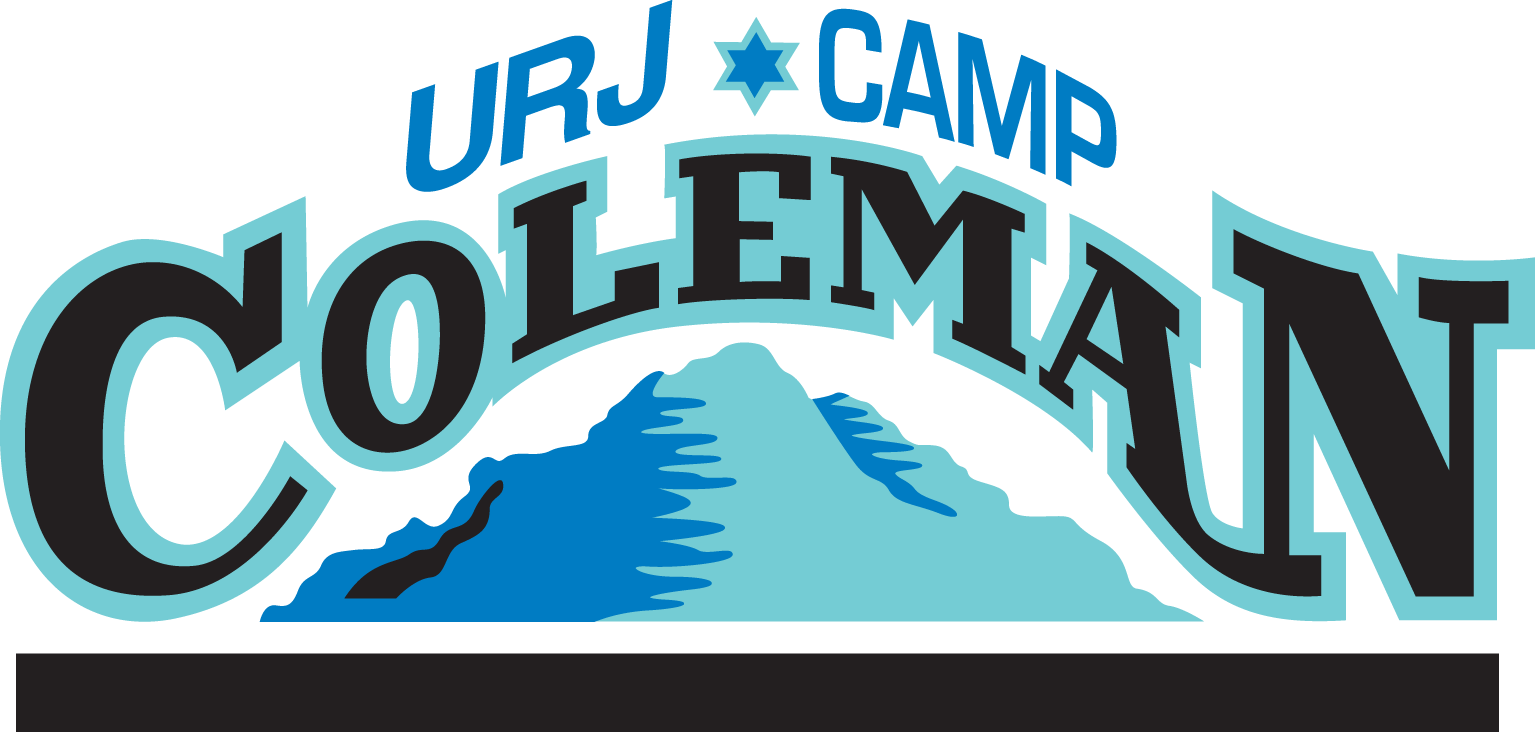Judaism at Coleman is not one-size-fits-all. It is dynamic with each camper adding their voice to the chorus. Jewish experiences expand beyond t’filah (prayer) or LaB (Learning and Belonging, our experiential Jewish educational period). It is embedded in many aspects of our camp experience, whether singing blessings before and after meals, using Hebrew words for places and activities around camp, or participating in the final evening siyyum (reflections). Judaism frames our days and surrounds us. It is not just what we do, it is how we live.
Our approach to t’filah reflects the balance between keva, the structure and consistency of tradition, and kavannah, the intention and personal meaning we bring to it. Services at Camp Coleman strive to incorporate recognizable and familiar prayers from home while combining alternative approaches, including new melodies and different hand motions, to the music. T’filah is the combination of familiar and fresh. We keep the core framework of Jewish prayer but bring it to life in ways that are relevant and engaging for our campers.
One of the most meaningful traditions is that each unit helps to lead an evening t’filah once per session. The campers choose a theme for their service that typically reflects one of Coleman’s four core values (chesed, shalom, kavod and kehillah, kindness, peace, respect and community) or something inspired by the name or spirit of their unit such as leadership for Nachshonim. They write prayer introductions called iyyunim, help chant, lead songs and bring their unique perspectives into the space. The result is powerful and personal, as the campers see themselves as sh’lichei tzibur (prayer leaders) and creators of their own sacred community.
Once a week, we participate in smaller experiences called “Tefilahpalooza“. It is our creative, camper-centered approach to prayer, offering something new each week by our staff and faculty. Each one is unique, exploring the entire service framework through a specific lens or modality, or focusing deeply on one or two prayers within the service. Some are high-energy with music and dance, others are quiet and reflective. They take place all over camp, from the woods on a trail to the beach at the lake. As an example, they incorporate journaling, art, movement, song, discussion or drama to connect with the prayers.
We pray daily at camp, building both spiritual muscle memory (keva) and moments of deep, sometimes unexpected connection (kavannah). Prayer becomes not just a ritual, but a reflection of who we are and who we are becoming.
Rabbi Melissa Stollman, Rosh T’filah (Head of Worship)
Rabbi Stollman is from Parkland, FL and works independently with many congregations in the Southeast and across the country as a marketing consultant, life-cycle officiant, teacher and songleader.
